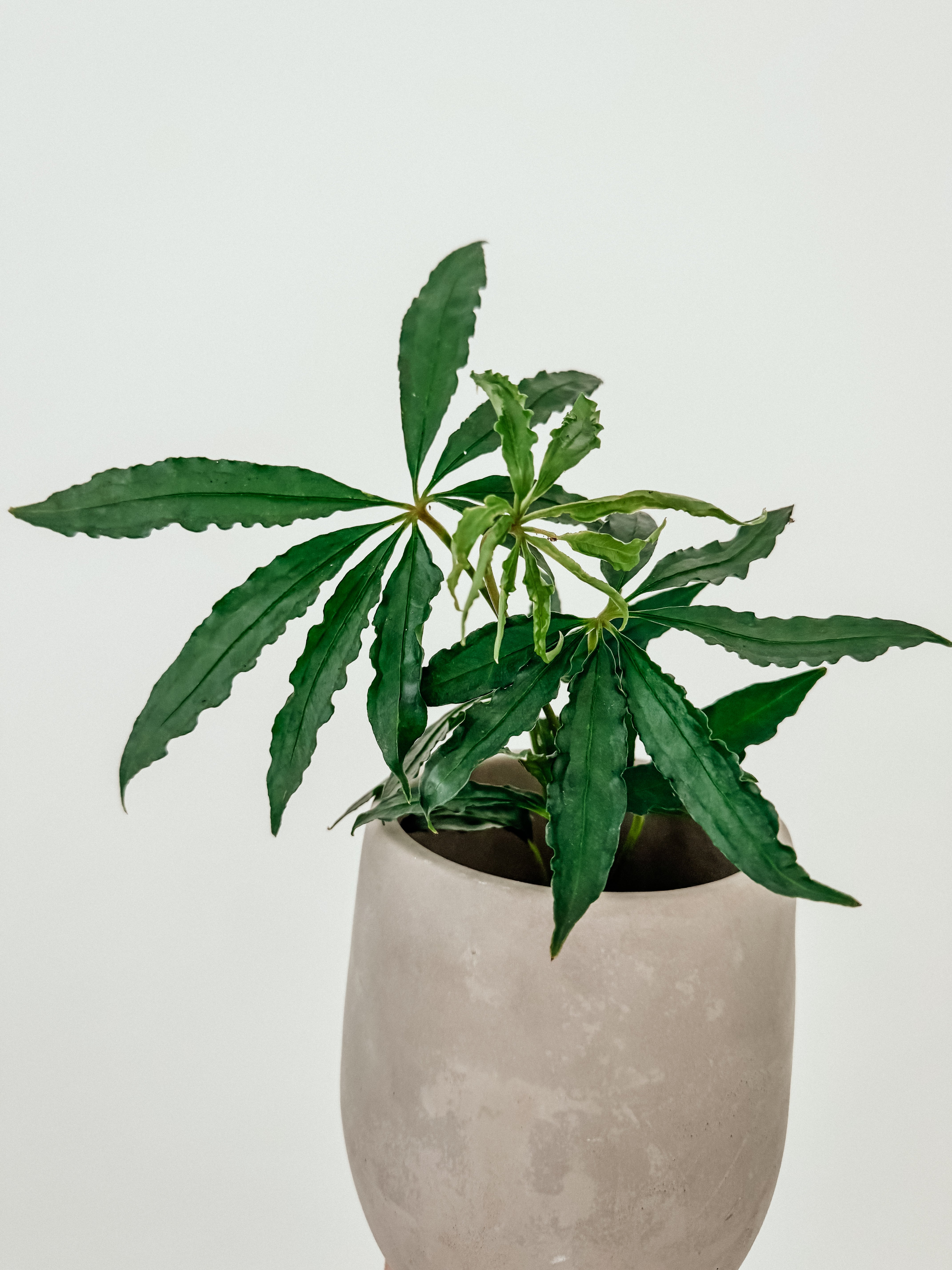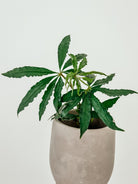Anthurium Polyschistum
Couldn't load pickup availability
Anthurium polyschistum — a striking, climbing Anthurium with divided “palmate” leaves. It can be very rewarding if given the right conditions. If you like, I can also tailor the advice for Dubai’s climate.
Key Facts
-
Habit: Climbing or vining, can grow terrestrially or epiphytically.
-
Leaves: Palmate (divided into several lobes or leaflets), somewhat delicate margins.
Light
-
Prefers bright, indirect light. East or north‐facing windows are ideal. If placed near harsher sun (south/west) use sheer curtains or place the plant a few feet back.
-
Too much direct sun → leaf burn (brown patches). Too little light → slow growth, smaller and less deeply lobed leaves.
Watering
-
Keep the soil slightly moist, but not soggy. Let the top ~2.5 cm (≈ 1 inch) or so of soil dry out before watering again.
-
Water thoroughly when watering; ensure excess water drains. Avoid letting roots sit in standing water
-
In cooler/dormant periods, reduce frequency; in warm, bright or high‐evaporation conditions, you’ll need to water more often.
Soil / Potting Mix
-
Needs a well‐draining yet moisture‐retentive mix. Typical components: orchid bark, perlite or pumice, peat moss or coco coir, maybe some charcoal.
-
The mix should allow good aeration so roots don’t suffocate.
Temperature & Humidity
-
Ideal temperature around 18-27 °C (65-80°F).
-
High humidity is important: 60-80% or higher preferred. Dry air will lead to browning leaf edges, slow growth, difficulties with leaf emergence.
Fertilization
-
During growing season (spring & summer), fertilize with a balanced liquid fertilizer, diluted (often ~½ strength) every 4-6 weeks.
-
Cut back fertilizing in fall/winter when growth slows.
Support & Growth
-
Because it’s a climbing species, giving it support (moss pole, tree fern pole, trellis) helps encourage upward growth and larger leaves.
-
You can prune away damaged or old leaves to keep appearance neat; clean tools to avoid infections.
Repotting
-
Repot when the plant becomes root bound or when mix has degraded. Usually every 1-2 years.
-
Use fresh, chunky mix. Be gentle with roots; prune dead roots.


